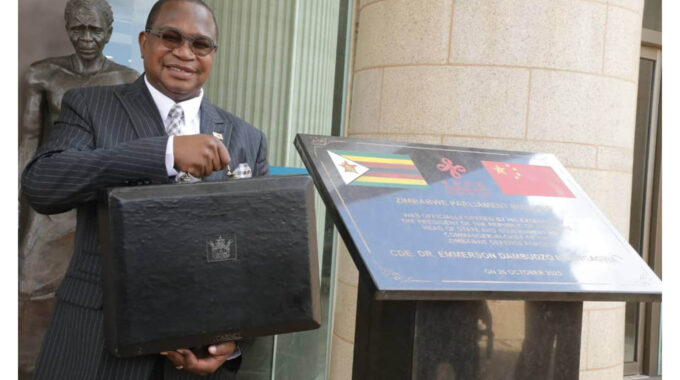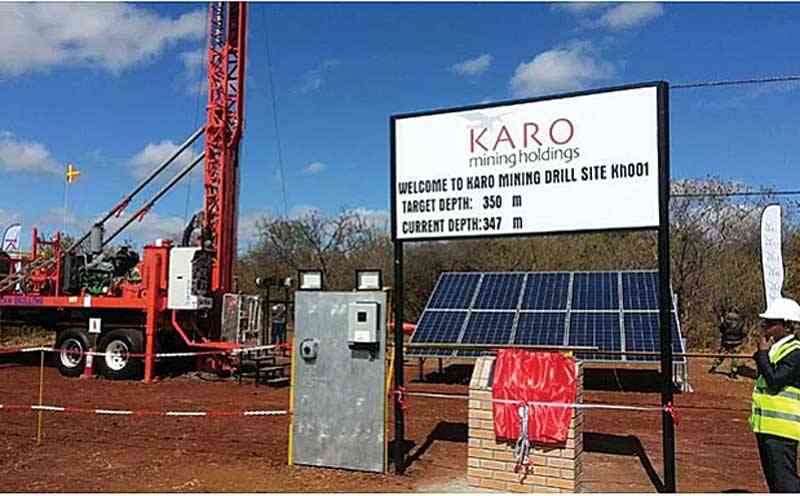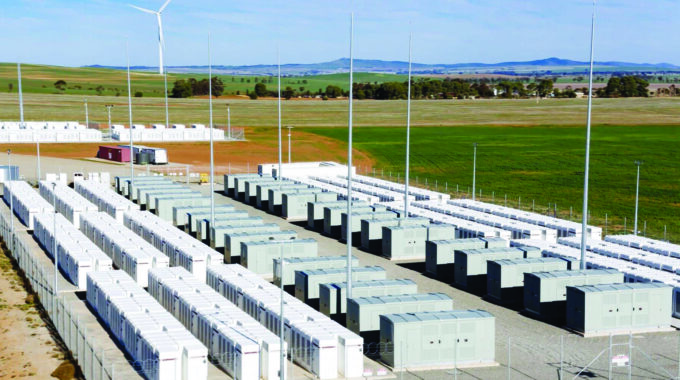Climate proofing agriculture key as country faces El Nino threats
Lands Agriculture, Fisheries, Water and Rural Development Permanent Secretary, Professor Obert Jiri (Right) and Commercial Farmers Union of Zimbabwe president Dr Shadreck Makombe share notes during Business Weekly Agri Business Forum on Friday.
Government is hastening to climate proof the country’s agriculture through completion of key irrigation projects, especially in drier areas of the country as part of a host of measures to ameliorate negative effects of Elnio as preparations for the 2023/24 summer cropping season gathers pace.
Lands Agriculture, Fisheries, Water and Rural Development Permanent Secretary, Professor Obert Jiri, said this at the Agri-Business Forum convened by the Business Weekly in Harare on Friday.
The forum ran under the theme; “Collaboration for a Sustainable Future: Agriculture and Business Working Together” sought to foment synergies between the agriculture sector’s primary producers, input providers, and manufacturers along the value chain.
“Whether there is El Nino or not we have a formula for climate proofing and producing, food, government is working tirelessly in building resilience and disaster preparedness measures, with programs such as climate-proofed agriculture Pfumvudza.
“Esteemed colleagues irrigation schemes are now playing a pivotal role in the face of climate change since it is now difficult to rely on rain-fed agriculture, thus the government is working on improving irrigation infrastructure on old and new irrigation schemes through rehabilitation and expansion.
“In 2022 a total of 324 irrigation schemes of the 450 schemes were commercialized against a target of 200 by the Agriculture Rural Development Authority (ARDA). The government is also taking onboard programs such as the Pedstock facility, Smallholder Irrigation Revitalization Program (SIRP),” Prof Jiri said.
Weighing in on the conversation, Zimbabwe Commercial Farmers Union (ZCFU) president Dr Shadreck Makombe said support of the vulnerable communities through improvement of agriculture irrigation systems would enhance the sustainability of the vulnerable livelihoods.
“We have been calling for climate-proofed agriculture for quite some time now and we continue to lobby for that because whether we like it or not we are still going to be confronted by climate change, the change is real.
“The continued erratic rains and unpredictable weather patterns need a long-term solution as we cannot continue to rely on rain-fed crops, as an agrarian-based economy. The role of farmers is clear, it just needs support through capacitation with irrigation equipment,” said Dr Makombe.
Business Weekly Editor, Mr Herbert Zharare said Zimbabwe’s stature as an Agro-based economy required serious conversations and action around climate proofing of the agriculture sector.
“Given the centrality of small-scale farmers in Zimbabwe as far as national food security is concerned, I hope Government is working on mechanization schemes that suit their size, as current schemes are concentrating on large-scale farmers,” said Zharare.
Finance and Economic Development Minister Mthuli Ncube is on record saying Zimbabwe’s agriculture need to be climate-proofed so that it relies more on irrigation to enhance Zimbabwe’s adaptation to global warming.
Stakeholders in the sector have implored government to come up with a ‘green budget ‘which considers financing sustainable methodologies to secure future farming initiatives so that livelihoods can recover from shocks of climate variability.
Sustainable Development Goal (SDG) number 13 calls on governments across the globe to take urgent action to combat the effects of climate change and its impacts.
As a result Government has been immersed in crafting mechanisms to curb the negative effects of climate change.
As it stands, for the 2023/24 summer cropping season, the Government is aiming to commit at least 70 316 hectares to irrigated maize production, with a potential of 400 000-500 000 metric tonnes production.
According to the Ministry of Agriculture, national dam level stands at 82 percent full across the country which allows the country to have more capacity to irrigate.
On the other hand, the Government is earmarked to provide support to 3 million rural and 500 000 peri-urban beneficiaries, with region-specific input packages encompassing seed, fertiliser, and chemicals.
The country has lately seen an increased frequency and lengthy dry spells during the rainy season, and the severity of these changes is projected to grow going forward.
Zimbabwe has experienced extreme temperatures of 0, 9 degrees celsius above the average between 1901 and 2012 while the number of hot days has increased since 1950.
According to the World Bank and United Nations Development Programme (UNDP), the country has also been witnessing a decline in average rainfall by five percent since 1915.
As such, this has presented major challenges to the agriculture-reliant livelihoods dotted across the country, thus growing calls to increase support to this vulnerable constituency of the Zimbabwean population through irrigation support.
Agriculture sector stakeholders and analysts have roundly exhorted Government to seek a ‘green budget ‘that also considers financing sustainable methodologies to secure future farming initiatives and that livelihoods can recover from shocks of climate variability.-ebusinessweekly










